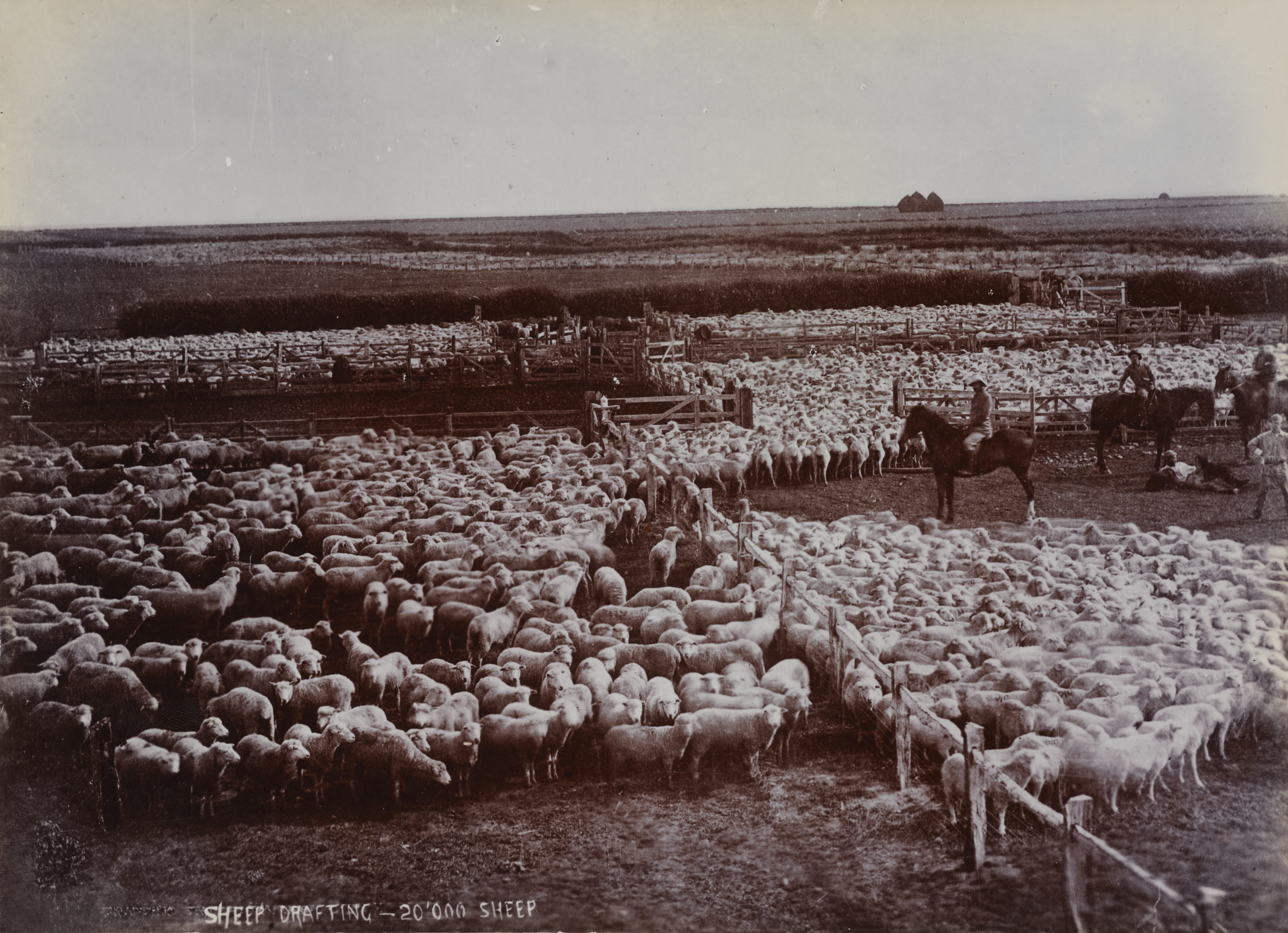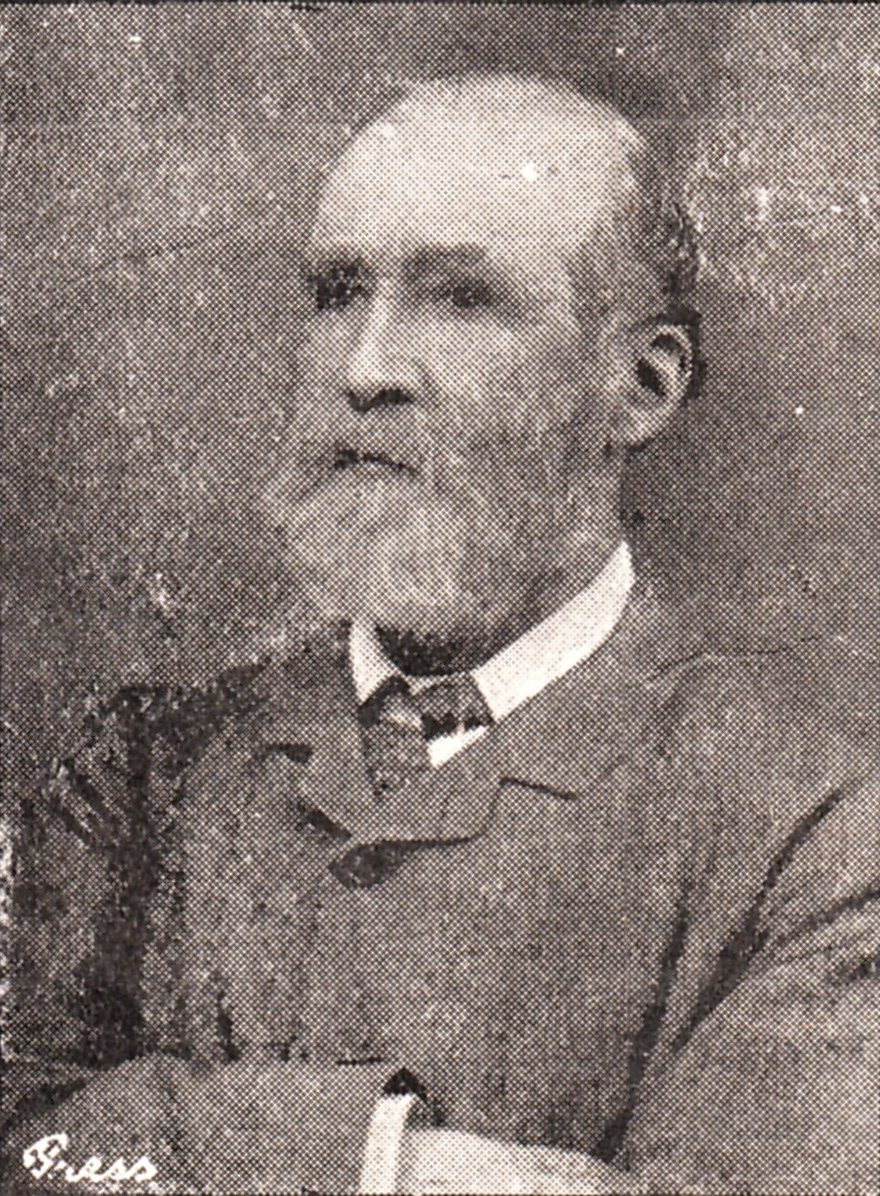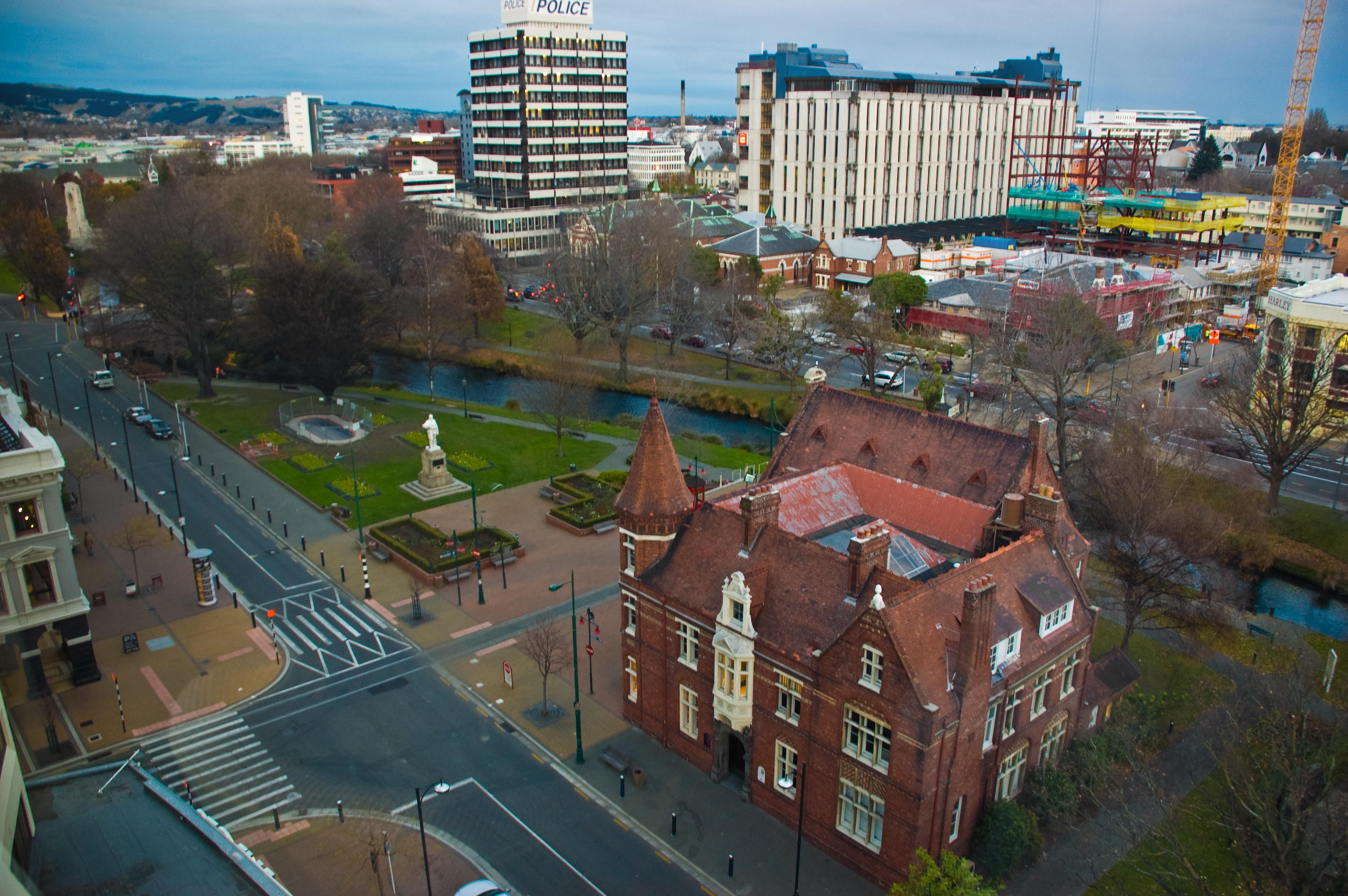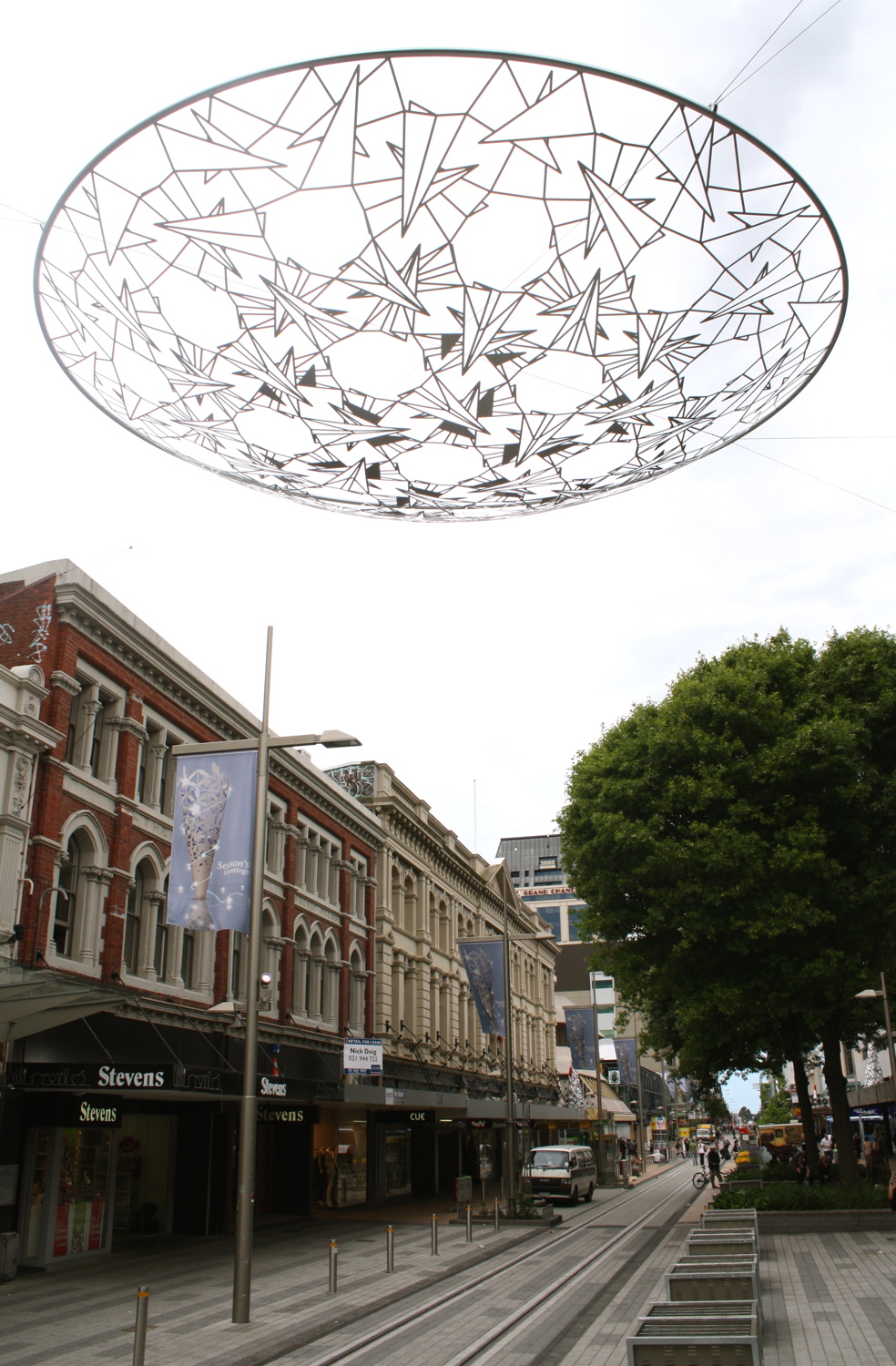|
George Ross (farmer)
George Arthur Emilius Ross (some sources say Aemilius, Æmilius, or Emileus; 1829 – 23 November 1876) was a New Zealand farmer and provincial politician. A cultured and well-educated man, he suffered a breakdown while at Oxford University and relocated to Christchurch for health reasons before he finished his degree. After a short period as a cadet to learn the basics of sheep farming, he became a major land owner. He was an elected member of the Canterbury Provincial Council (1858–1861; 1862–1865) for the rural Rakaia electorate and was on the Canterbury Provincial Executive Council on a number of occasions (1859; 1863–1867) including nearly two years as provincial treasurer. Well-liked as an individual, he was chaotic as a businessman and went bankrupt after a harsh winter in 1867 that caused great loss of stock. He suffered a mental breakdown and disappeared from public life thereafter, with his young wife, Sibella, sustaining the family by running a school that her pa ... [...More Info...] [...Related Items...] OR: [Wikipedia] [Google] [Baidu] |
Canterbury Province
The Canterbury Province was a Provinces of New Zealand, province of New Zealand from 1853 until the abolition of provincial government in 1876. Its capital was Christchurch. History Canterbury was founded in December 1850 by the Canterbury Association of influential Englishmen associated with the Church of England. (An attempt was initially made to restrict residence in the province to members of the church but this was abandoned.) The ''Charlotte Jane'' and the ''Randolph (ship), Randolph''—the first two of the First Four Ships—arrived in the area on 16 December 1850, later celebrated as the province's #Anniversary Day, Anniversary Day. In 1852, the Parliament of the United Kingdom passed the New Zealand Constitution Act 1852, which amongst other things established Provinces of New Zealand, provincial councils. The Constitution contained specific provisions for the Canterbury Association; the first being that the new General Assembly (New Zealand Parliament) could not amend ... [...More Info...] [...Related Items...] OR: [Wikipedia] [Google] [Baidu] |
Henry Tancred (New Zealand Politician)
Henry John Tancred (1816 – 27 April 1884), also known as Harry Tancred, was a 19th-century New Zealand politician. Early life Tancred was baptised on 14 May 1816 at the Isle of Wight. His father was Sir Thomas Tancred, 6th Baronet and his elder brother was Sir Thomas Tancred, 7th Baronet. He was educated at Rugby School. He served in the Austrian army and fought in Austria, Hungary and Italy. He was severely injured in a fall from a horse and had a speech impairment as a result. New Zealand Back in England to recuperate, he became interested in the Canterbury Association and decided to emigrate. He arrived in Canterbury in December 1850 from Wellington on the ''Barbara Gordon'', just prior to the arrival of the first Canterbury settlers. He married Georgeanna Janet Grace Richmond in Nelson on 30 July 1857. Political career Provincial Council Tancred was one of three candidates for the role of Superintendent in 1853. The election was won by James FitzGerald. He became a ... [...More Info...] [...Related Items...] OR: [Wikipedia] [Google] [Baidu] |
Charles Wyatt (politician)
Charles William Wyatt was a New Zealand solicitor and politician. He practised as a solicitor in Christchurch, then in 1851 became a Canterbury Provincial Council The Canterbury Province was a province of New Zealand from 1853 until the abolition of provincial government in 1876. Its capital was Christchurch. History Canterbury was founded in December 1850 by the Canterbury Association of influential Eng ...lor for Avon. He held that position until 1861, being an executive member in 1859. References {{DEFAULTSORT:Wyatt, Charles William 19th-century New Zealand politicians Members of the Canterbury Provincial Council 19th-century New Zealand lawyers ... [...More Info...] [...Related Items...] OR: [Wikipedia] [Google] [Baidu] |
Richard James Strachan Harman
Richard James Strachan Harman (14 April 1826 – 26 November 1902) was trained as a civil engineer. However, in Christchurch, New Zealand, he worked as a bureaucrat, politician and businessman. He was one of the Canterbury Pilgrims, having arrived in Lyttelton, on , one of the First Four Ships. He was a business partner of Edward Cephas John Stevens and senior partner of Harman and Stevens, and together they took financial control of the Christchurch newspaper ''The Press'' from its original proprietor, James FitzGerald, over a protracted period. Harman held many important roles with the Canterbury Provincial Council and was the last Deputy-Superintendent. Early life Harman was born in Dublin in 1826, the son of Richard Harman. He was educated at Rugby School under Dr Thomas Arnold, and at King's College London. He was a pupil of George and Sir John Rennie, the London engineers, and he graduated as a civil engineer. Professional life Soon afterwards, he emigrated to New Zeal ... [...More Info...] [...Related Items...] OR: [Wikipedia] [Google] [Baidu] |
Christ's College, Christchurch
Christ's College, Canterbury is an independent Anglican secondary day and boarding school for boys, located in the city centre of Christchurch, New Zealand. Founded in 1850 by Reverend Henry Jacobs in Lyttelton as a school for early settlers, college is the oldest independent school in the country. The college currently caters for approximately 698 students from Year 9 to Year 13. Christ's College is an International Member of The Headmasters' and Headmistresses' Conference (HMC). The Headmasters' and Headmistresses' Conference (HMC) represents the Heads of the leading independent schools in Ireland and the United Kingdom and International schools mainly from the Commonwealth. Christ's College is one of only three member schools in New Zealand. College is also member of Round Square, an international network of 230 schools in 50 countries around the world. Christ’s College is one of the three Round Square member schools in New Zealand. History Christ's College (formerly Ch ... [...More Info...] [...Related Items...] OR: [Wikipedia] [Google] [Baidu] |
Christchurch City Council
The Christchurch City Council is the local government authority for Christchurch in New Zealand. It is a territorial authority elected to represent the people of Christchurch. Since October 2022, the Mayor of Christchurch is Phil Mauger, who succeeded after the retirement of Lianne Dalziel. The council currently consists of 16 councillors elected from sixteen wards, and is presided over by the mayor, who is elected at large. The number of elected members and ward boundaries changed prior during the 2016 election. History As a result of the 1989 local government reforms, on 1 November 1989 Christchurch City Council took over the functions of the former Christchurch City Council, Heathcote County Council, Riccarton Borough Council, Waimairi District Council, part of Paparua County Council, and the Christchurch Drainage Board. On 6 March 2006, Banks Peninsula District Council merged with Christchurch City Council. Councillor Yani Johanson campaigned since 2010 to live-strea ... [...More Info...] [...Related Items...] OR: [Wikipedia] [Google] [Baidu] |
Riccarton Race Course
Riccarton is a suburb of Christchurch. It is due west of the city centre, separated from it by Hagley Park. Upper Riccarton is to the west of Riccarton. History On 12 April 1840, the ship ''Sarah and Elizabeth'' landed Herriot, McGillivray, Ellis, Shaw (and wife) and McKinnon (with his wife and child) who established a farm at Riccarton. They were the first European settlers on the plains." In January 1841, they abandoned their attempt to farm in the area. Riccarton House was the homestead commissioned by Jane Deans in circa 1855. The Deans brothers, who along with the Gebbies and the Mansons were the second group of Europeans to settle in Christchurch on the same site as the first group in 1843. Their original cottage is on the grounds, moved twice from its original position. Riccarton House is now a restaurant and function centre, and conducts regular tours. The Deans brothers, John and William, named the suburb after the parish in Ayrshire, Scotland, in which they were bor ... [...More Info...] [...Related Items...] OR: [Wikipedia] [Google] [Baidu] |
The Press
''The Press'' is a daily newspaper published in Christchurch, New Zealand owned by media business Stuff Ltd. First published in 1861, the newspaper is the largest circulating daily in the South Island and publishes Monday to Saturday. One community newspaper—''Northern Outlook''- is also published by ''The Press'' and is free. The newspaper has won the title of New Zealand Newspaper of the Year (in its circulation category) three times: in 2006, 2007 and 2012. It has also won the overall Newspaper of the Year title twice: in 2006 and 2007. History James FitzGerald came to Lyttelton on the ''Charlotte Jane'' in December 1850, and was from January 1851 the first editor of the ''Lyttelton Times'', Canterbury's first newspaper. From 1853, he focussed on politics and withdrew from the ''Lyttelton Times''. After several years in England, he returned to Canterbury concerned about the proposed capital works programme of the provincial government, with his chief concern the pro ... [...More Info...] [...Related Items...] OR: [Wikipedia] [Google] [Baidu] |
Sequestration (law)
In law, sequestration is the act of removing, separating, or seizing anything from the possession of its owner under process of law for the benefit of creditors or the state. Etymology The Latin ''sequestrare'', to set aside or surrender, a late use, is derived from sequester, a depositary or trustee, one in whose hands a thing in dispute was placed until the dispute was settled; this was a term of Roman jurisprudence (cf. ''Digest L.'' 16,110). By derivation it must be connected with ''sequi'', to follow; possibly the development in meaning may be follower, attendant, intermediary, hence trustee. In English "sequestered" means merely secluded, withdrawn. England In law, the term "sequestration" has many applications; thus it is applied to the act of a belligerent power which seizes the debts due from its own subject to the enemy power; to a writ directed to persons, "sequestrators," to enter on the property of the defendant and seize the goods. Church of England There are also t ... [...More Info...] [...Related Items...] OR: [Wikipedia] [Google] [Baidu] |
Lancelot Walker
Lancelot Walker (26 November 1829 – 19 May 1907) was a 19th-century Member of Parliament in New Zealand. Walker was born in 1829 to Thomas and Constantia Anne Walker of Co York, England. He served in the British Army in India, although in which regiment or unit is unclear. Walker came to New Zealand in 1856. He lived at ''Four Peaks'', Geraldine, Canterbury, where he died. Walker represented the electorate from the after the resignation of Augustus White to 1866, when he was defeated by George Armstrong by just four votes at the held on 21 February. A few days later on 2 March, he won election in the electorate, which he represented until he resigned in 1867. On 15 May 1885, he was appointed to the New Zealand Legislative Council The New Zealand Legislative Council was the upper house of the General Assembly of New Zealand between 1853 and 1951. An earlier arrangement of legislative councils for the colony and provinces existed from 1841 when New Zealand be ... [...More Info...] [...Related Items...] OR: [Wikipedia] [Google] [Baidu] |
Alfred Barker (doctor)
Alfred Charles Barker (1819–1873) was a New Zealand doctor and photographer. Barker was born on 5 January 1819 at Hackney, London in England. Barker was the fifth child of Joseph Gibbs Barker and Sarah Pritchett Bousfield. He studied medicine at King's College, London. He and his wife Emma (née Bacon) arrived at Lyttelton on the ''Charlotte Jane'' on 16 December 1850 and settled in Christchurch, where they had five children. Barker died on 20 March 1873 and was buried in the Barbadoes Street Cemetery. References External links Dr Alfred Charles Barker , Cantage – Canterbury Heritage [...More Info...] [...Related Items...] OR: [Wikipedia] [Google] [Baidu] |
West Melton, New Zealand
West Melton is a town in the Selwyn District, in the Canterbury region of New Zealand's South Island. It is located west of Christchurch and is part of the Christchurch metropolitan area. The town has a population of 2,640 (June 2022), making it the 124th-largest urban area in New Zealand, the 16th-largest in Canterbury and fifth-largest in the Selwyn District (behind Darfield and before Leeston). History West Melton was first settled in the 1870s, where it has long been associated with horse racing (trotting), cropping, and sheep farming. Recently, it has become associated with wine growing and deer farming. In 1881, Alfred Saunders arrived in West Melton, where he bought a farm that he referred to as a “bleak and wild looking property”. On 26 October 2014, West Melton residents celebrated the town's 150th anniversary. Urban expansion In 2007, West Melton saw the start of its urban expansion. Gainsborough and Halkett Grove subdivisions were the first developmen ... [...More Info...] [...Related Items...] OR: [Wikipedia] [Google] [Baidu] |





